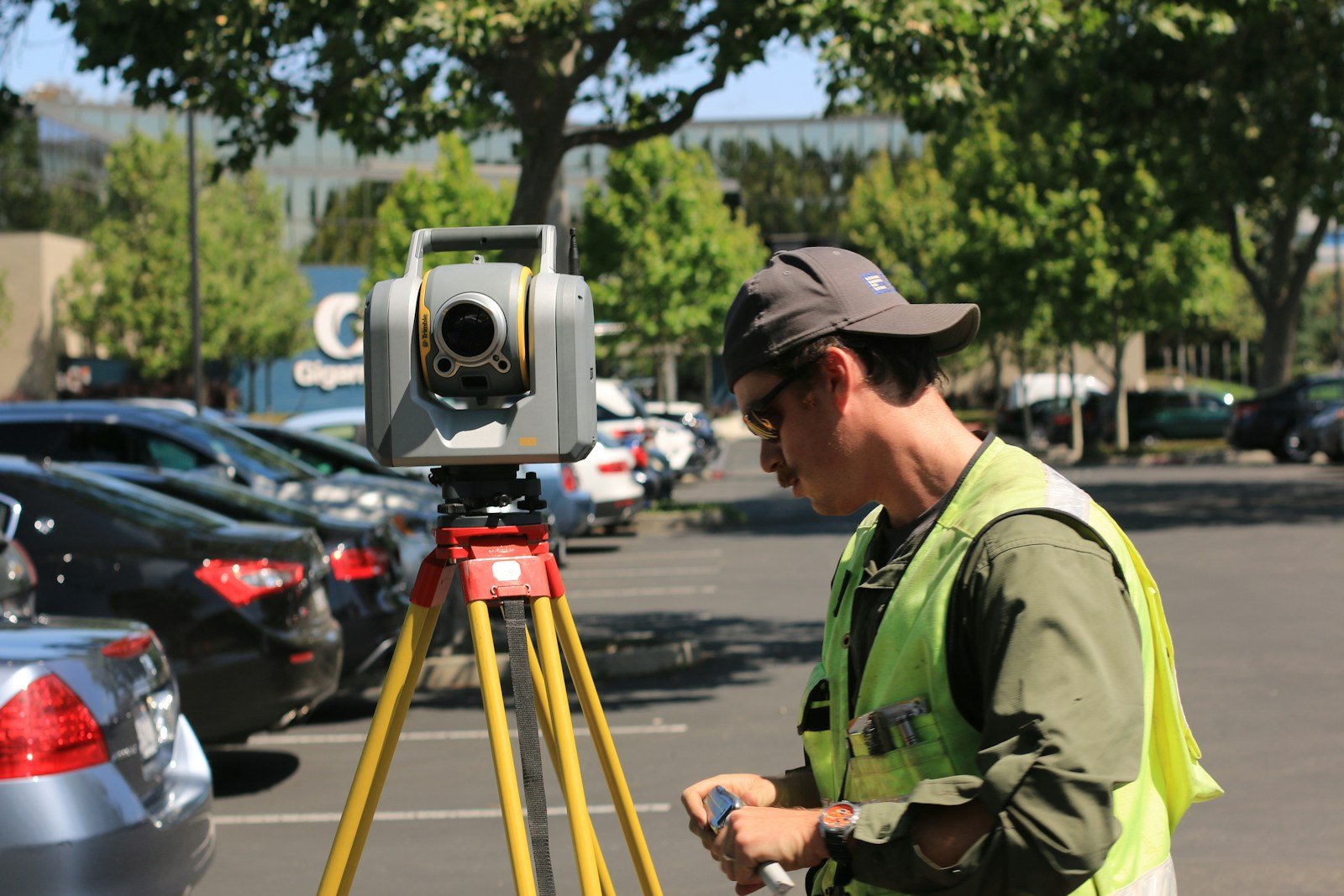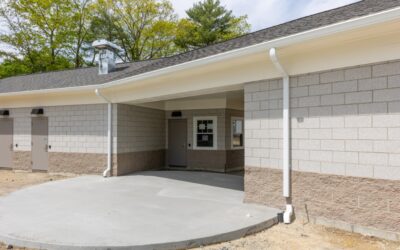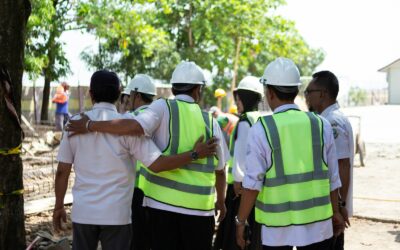Are you wondering if you need a property survey done to establish boundaries of your new commercial development? The answer is probably yes.
Building on a Solid Foundation
Before breaking ground on any commercial construction project, we start with one simple question: Do we truly understand the property we’re working with? A professional property survey is more than a formality—it’s the foundation for every informed decision that follows.
In real estate development, overlooking this step is a risk no one can afford to take. At South Coast Improvement Company, we’ve seen firsthand how accurate land surveys save time, reduce risk, and prevent costly disputes over property lines. A project’s success is built on certainty, and that begins with hiring professional surveyors to map the terrain.
What Is a Property Survey
A property survey is a detailed look at the land itself. It maps out exactly where one property ends and another begins, setting the legal boundaries that guide everything from construction and ownership to real estate deals. In short, it’s how we—and your mortgage lender, title company, and real estate agent—know what’s yours and what’s not.
A property line survey shows the size, shape, and layout of the land. It also includes boundary lines, utility company easements, existing structures, and other features like driveways, fences, or drainage areas. The results are compiled into official survey reports and added to your property records, so you have a clear, legal reference if questions ever come up later.
Depending on the size and complexity of the property, the process can take anywhere from a few hours to several days. Professional surveyors use advanced equipment and local data, often checking records from a previous surveyor or the local tax assessor’s office to make sure everything lines up accurately.
A boundary survey does more than draw lines on a map—it protects your legal rights as a property owner. Whether you’re buying a new property, managing real estate transactions, or planning a major build, you’ll likely need a property survey to confirm your land boundaries before moving forward.
Skipping this step can create headaches later. A building that accidentally extends into a neighbor’s property can spark a dispute. A missed easement can cause costly construction delays. Having a precise survey early on helps settle disputes, protect potential buyers, and support better decision making for everyone involved.
At South Coast Improvement Company, we see the property survey as more than a checklist item. It’s where every successful project starts—with clarity, accountability, and confidence in the ground beneath your feet.
Why a Property Survey Matters in Commercial Development
When we begin a project, we rely on clear, verified data. A detailed property survey provides the critical information needed to move forward confidently. It helps us:
- Define Exact Boundaries: A survey is the only way to confirm a property’s boundaries with legal certainty. Defining property lines correctly from the start prevents encroachment issues and future boundary disputes with neighboring properties.
- Verify Legal Descriptions: Lenders and title companies require an accurate legal description of the property to issue a loan or a title insurance policy. A survey provides this verification, ensuring all legal and financial documents are precise.
- Identify Critical Features: A survey reveals the location of hidden elements like underground utility lines, easements, and existing structures that could impact the design and construction plan. This knowledge prevents costly and dangerous mistakes during excavation.
- Provide a Detailed Map: The survey serves as the master blueprint for architects, engineers, and contractors. It provides a detailed map that allows the entire team to plan their work safely, efficiently, and in compliance with all regulations.

Types of Property Surveys We Rely On
Not all surveys serve the same purpose. The specific needs of a commercial project dictate which types of property surveys are required. Depending on the project, we often request one or more of the following from a licensed land surveyor:
Boundary Survey
This is the most common type, used to determine the exact legal limits of a property. A boundary survey is essential for identifying any overlaps or gaps with an adjacent property before design work begins.
Topographic Survey
For any project involving new construction or site modifications, a topographic survey is crucial. It maps the elevation changes, trees, drainage patterns, and other surface features, which is vital information for architects and engineers during the design-build process.
As-Built Survey
After construction is finished, an as-built survey is performed to confirm that the new structures and improvements have been built according to the approved plans. This is often a requirement for project closeout and municipal approvals.
ALTA/NSPS Land Title Survey
This is the most comprehensive type of survey. An American Land Title Association (ALTA) survey meets the high standards required by lenders and title insurers for large-scale or high-value commercial projects. It combines elements of boundary, topographic, and location surveys into one detailed report.
Subdivision Survey
When a larger parcel of land is being divided into smaller lots for multi-use developments or phased construction, a subdivision survey is necessary. It creates new, legally recognized property lines for each new lot.
Land Survey
A land survey is a broader term that covers the process of measuring, mapping, and documenting a parcel’s boundary lines, legal boundaries, and physical features. It’s often required before any real estate transactions, utility installations, or permit applications. In some cases, floodplain surveys or site-specific reports are also needed to satisfy local regulations and ensure compliance with the local tax assessor’s office.
Each type of survey serves a different purpose, but they all share one goal: giving every party—owners, lenders, and builders—clear, reliable information before construction begins. At South Coast Improvement Company, we make sure the right survey is in place so every project starts on solid ground.
The Cost of a Property Survey—and the Cost of Skipping One
A property survey cost can vary based on the property’s size, location, terrain complexity, and the type of survey needed. While some might view the survey cost as just another expense, we consider it an essential investment in risk management.
Skipping this critical step can lead to significant financial and legal consequences. Without a survey to establish exact boundaries, projects can face:
- Boundary Disputes: Building too close to or on a neighbor’s land can lead to expensive legal issues and may even require the removal of completed work.
- Permit Delays: Municipalities require accurate surveys to issue building permits. Inaccurate or missing information will bring the project to a halt.
- Unexpected Construction Costs: Discovering unforeseen easements or underground utility lines after construction has started can force costly design changes and cause major delays. These potential encroachments are easily avoided with a proper survey.
- Lender Complications: Most lender requirements for commercial loans include a current and accurate survey. Failing to provide one can jeopardize project financing.
How We Use Surveys to Protect Clients’ Investments
At South Coast Improvement Company, our pre-construction process is built on a foundation of due diligence. We start by reviewing all previous surveys available for a property. If an existing survey is old or lacks detail, we coordinate with a licensed professional to get it updated or conduct a new one.
We collaborate closely with title companies, architects, and engineers to ensure every plan reflects the true conditions of the site. By using the detailed information from a survey to address boundary concerns, easements, and topographical challenges early, we help property owners, developers, and lenders make informed decisions. This proactive approach protects our clients’ investments and keeps projects moving forward smoothly.

Photo by Markus Winkler on Unsplash
When to Update or Request a New Survey
An old survey might not reflect the current state of a property. If the previous surveys are outdated, incomplete, or missing details on recent improvements, it’s time to get a fresh one. We often recommend ordering a new property survey if:
- Property ownership has recently changed.
- The site hasn’t been professionally surveyed in over five years.
- New construction, grading, or significant landscaping has occurred since the last survey.
- The lender or title company requests an updated current survey to satisfy loan or insurance requirements, which is common for a mortgage survey.
Partnering with Trusted Survey Professionals
Precision is non-negotiable in commercial construction. That’s why we only work with licensed professional surveyors who have a deep understanding of the industry’s demands.
A qualified land surveyor provides the accurate data our team needs to plan safely, comply with all legal requirements, and deliver a seamless build with no surprises. The final report the survey shows is a document we rely on throughout the project lifecycle, from initial concept to final sign-off.
Start Every Project with Clarity
Before a single foundation is poured, we ensure every boundary, easement, and physical feature is known and accounted for. A proper property survey protects everyone involved—from the property owner and developer to the title company and lender.
It’s an indispensable tool for mitigating risk and is fundamental to how we uphold our commitment to transparency, accountability, and lasting value on every project we touch.
View Our Work
The Overlook – Masonic Health System
"We’re honored to have partnered with The Overlook on this transformative initiative. Our team brought specialized expertise in working within occupied senior living communities, delivering a seamless renovation that aligns with The Overlook’s exceptional standards of...
Hamilton Wenham
Their team was collaborative, responsive, and committed to our shared vision for this space, -Eric Tracy Superintendent, Hamilton-Wenham Regional School District We partnered with the Hamilton-Wenham Regional School District to deliver a brand-new athletic building...







